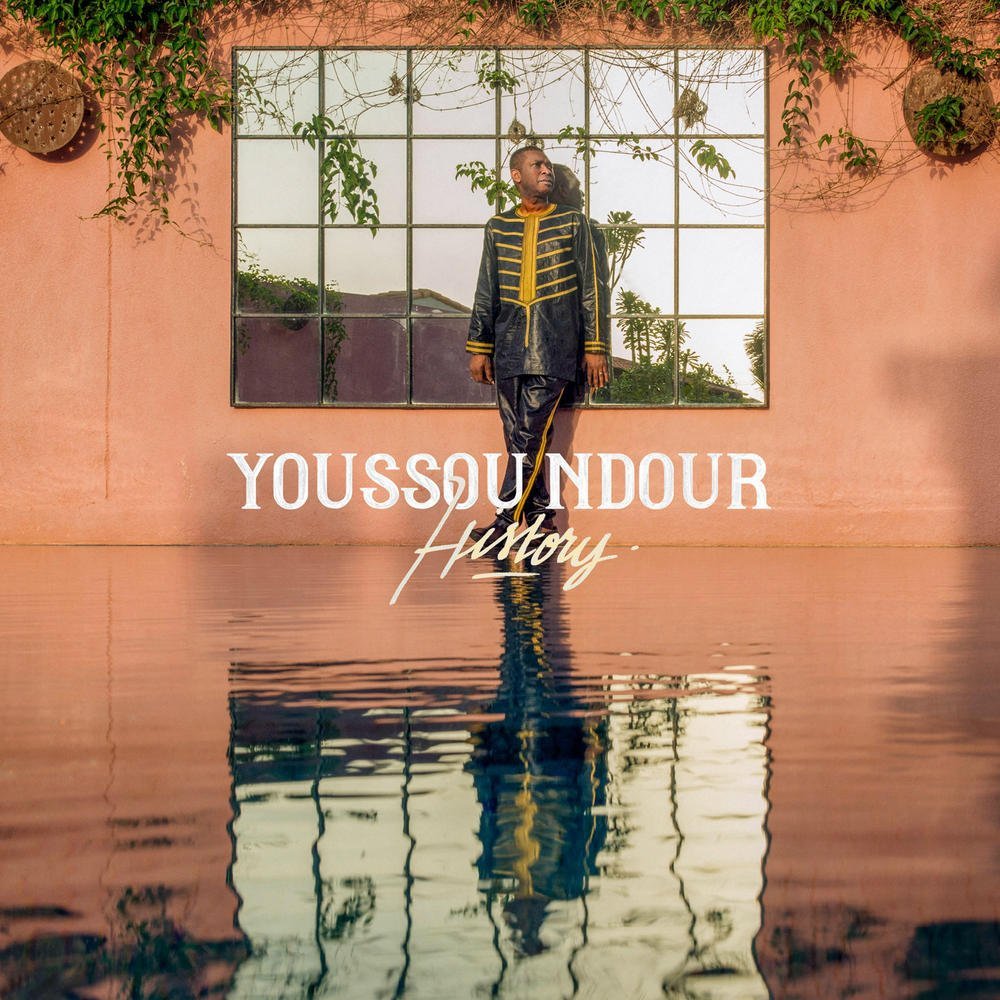With the stately new album History, Senegalese superstar Youssou N’Dour follows up his 2018 Prom and celebrates his 60th birthday. A confusing collection of old songs from N’Dour’s repertoire with added special guests and a few new tunes; it’s fine, but no fire.
Alongside bands like The Bhundu Boys, Youssou N’Dour headed up the crossover breakthrough of ‘World Music’ in the 1980s.
Scoring a UK number 1 with the duet ‘Seven Seconds’ with Neneh Cherry in 1994, and working extensively with Peter Gabriel and Amnesty International, the noughties saw Youssou move into politics, running for president in 2012 and serving as Senegal’s Minister for Culture and Tourism.
N’Dour also differs from the early (and exploited) hopes of World Music execs in being an astute businessman who chooses to live in Senegal, where he is the proprietor of a newspaper, a radio station and a TV channel.
https://www.youtube.com/watch?v=BNi3HSQNwLg
Thus, History opens with `Habib Faye’, an elegy to N’Dour’s late bass player that manages to be uplifting and filled with sunshine. The production is heavy and the keyboards wet, where the early mbalax music, popularised by Youssou N’Dour and his group Etoile de Dakar, was characterised by syncopated keys and guitar, underpinned by furious sabar drumming.
Nonetheless, Youssou N’Dour’s voice remains majestic and weightless.
Next up, Gambian star Seinabo Sey joins Youssou N’Dour for a ‘remix’ of the beautiful ‘Birima’, adding a soul and R&B flavour, which again is nice, but doesn’t necessarily improve on the original.
Also reworked is ‘Ay coona la’ from the 1990’s classic album Set. A Congolese guitar hook adds a rumba feel and proves Youssou N’Dour remains an artist who enjoys musical tourism.
Indeed, 2004’s Egypt and 2010’s Dakar-Kingston saw N’Dour respectively making connections with the Maghreb and Jamaica. History, however, lacks the focus and wholeness of these albums.
Nonetheless, N’Dour finally hits form on ‘Macoumba’; a tight mbalax that evokes the pace and atmosphere of Dakar. As is everywhere on the album, the musicianship is excellent, and at just over four minutes, it’s over too soon; a decision likely to be deliberate on an album that aims to be radio-friendly and accessible.
Album closer ‘Tell Me’ is a lovely listen, but more of the same.
On balance then, History is a satisfactory and heavily-produced album that lacks the urgency of early Youssou N’Dour or the delicious mbalax wobble of a sun-damaged cassette


